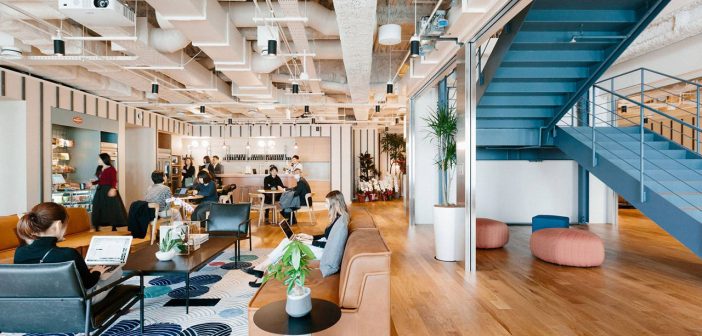Bengaluru leads the flexible workspace stock with around 6.0 million sq ft, finds Colliers Research.
Flexible workspace is one of the fastest-growing occupier segments in India, led primarily by increased end-user interest. Colliers International conducted a survey and detailed interviews to understand occupiers’ flexible workspace strategy over the next two years.
“Since the beginning of 2018, large enterprises have jumped onto the flexible workspace bandwagon, taking up about 18,200 seats. Over 2017-H1 2019, we note that technology and e-commerce companies have been driving demand for flexible workspaces”, says Ritesh Sachdev, Head- Occupier Services, India & Managing Director, South India at Colliers International.
About 33% of the occupiers surveyed said they are likely to take up space in a flexible workspace over the next 24 months, primarily for the host of benefits provided. About 45% of occupiers surveyed are uncertain about leasing in flexible workspaces, with the decision hinging on their expansion plans over the next two years. On the other hand, about 22% of the respondents said they are not likely to take up space in flexible workspace centers over the next 24 months.
Leasing by flexible workspace operators in 2018 was the largest on record, and we expect this year’s leasing to touch 8.8 million sq ft as operators rush to capture enterprise demand. We believe that leasing by flexible workspace operators to account for about 18-20% of total gross leasing in 2019, up from 7% in 2017.
Bengaluru leads Indian flexible workspace stock with around 6.0 million sq ft. NCR has the second-largest stock with 19%, with Mumbai close on their heels with 17% share of the total Indian flexible workspace stock.
As a result of occupier demands, flexible workspace operators have been growing their portfolio, and expanding at a rapid pace. We believe that the flexible workspace market in India is transitioning to a higher level of services, reflecting demand from enterprise occupiers for more customized spaces and bespoke services.
“Our survey reveals that CRE objectives have undergone a shift, with occupiers giving first preference to creating an employee-friendly environment. This has led to emergence of new dimensions in workplace strategy with a need for amenitisation and flexibility. In such a scenario, enterprises are looking towards flexible and agile workspaces. We note that flexible workspace operators are leasing large spaces, and even entire buildings in some cases, to cater to large space requirements from enterprises. Our survey and interactions with occupiers reveal that technology and e-commerce companies are more amenable to flexible workspaces. We expect some investment activity and deal closures by the end of 2019 or beginning 2020”, says Megha Maan, Sr. Associate Director, Research at Colliers International India.
Track2Realty is an independent media group managed by a consortium of journalists. Starting as the first e-newspaper in the Indian real estate sector in 2011, the group has today evolved as a think-tank on the sector with specialized research reports and rating & ranking. We are editorially independent and free from commercial bias and/or influenced by investors or shareholders. Our editorial team has no clash of interest in practicing high quality journalism that is free, frank & fearless.
Subscribe our YouTube Channel @ https://bit.ly/2tDugGl





